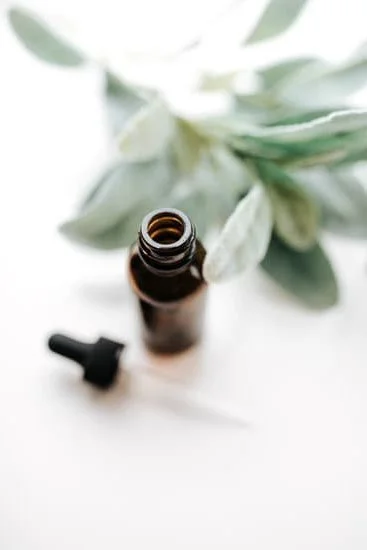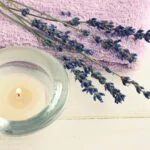Are you looking for natural ways to alleviate anxiety and stress? In this article, we will explore how to use aromatherapy oils for anxiety relief. Aromatherapy utilizes the power of essential oils to promote relaxation, improve mental well-being, and reduce feelings of anxiety. From understanding the science behind aromatherapy to choosing the right oils and incorporating them into your daily routine, this comprehensive guide will help you unlock the healing potential of aromatherapy for managing anxiety.
Aromatherapy has been used for centuries as a holistic approach to overall wellness. Essential oils derived from plants are known for their therapeutic properties and can have a powerful impact on emotional and mental health. In this section, we will delve into the fundamentals of aromatherapy, exploring how essential oils can be harnessed to support mental well-being and provide relief from anxiety.
Understanding the science behind aromatherapy is crucial in comprehending how essential oils can effectively impact our emotions and mental state. We will examine the scientific evidence supporting the use of aromatherapy oils for anxiety relief, shedding light on how specific compounds in essential oils interact with our brain and body to promote relaxation and reduce stress levels.
The Science Behind Aromatherapy
Aromatherapy is a practice that involves using natural plant extracts, known as essential oils, to promote physical and psychological well-being. These essential oils are typically extracted from various parts of plants and then distilled to capture their aromatic compounds. The art of aromatherapy has been around for centuries and is believed to have originated in ancient civilizations such as Egypt, China, and India.
The science behind aromatherapy lies in the powerful impact that essential oils can have on the brain and the body. When inhaled, these aromatic compounds stimulate the olfactory system, which is directly connected to the limbic system – the part of the brain that is responsible for emotions and memories. This connection allows essential oils to elicit emotional and physiological responses, making them effective in addressing conditions such as anxiety, stress, and depression.
In a study published by the National Center for Biotechnology Information, certain essential oils were found to have anxiolytic (anxiety-reducing) effects when used in aromatherapy. Oils such as lavender, rosemary, bergamot, and chamomile were shown to decrease symptoms of anxiety and improve overall mood when diffused or applied topically. Understanding how these oils can impact anxiety is crucial in harnessing their potential benefits for mental well-being.
| Essential Oil | Anxiety-Reducing Properties |
|---|---|
| Lavender | Calming and relaxing effects on the nervous system |
| Rosemary | Stress-relieving properties that can help reduce anxiety levels |
| Bergamot | Mood-boosting abilities that can alleviate feelings of anxiety |
Choosing the Right Aromatherapy Oils for Anxiety
When it comes to choosing the right aromatherapy oils for anxiety, it’s important to consider which scents are known for their calming and stress-reducing properties. There are several essential oils that have been shown to be particularly effective in managing anxiety. Some of the best options include lavender, chamomile, bergamot, and ylang ylang.
Lavender
Lavender is one of the most popular essential oils for anxiety relief. It has a soothing and relaxing scent that can help to reduce stress and promote a sense of calm. Research has shown that lavender oil can lower heart rate and blood pressure, making it an excellent option for alleviating anxiety symptoms.
Chamomile
Chamomile is another great choice for those looking to use aromatherapy oils for anxiety. The gentle, floral aroma of chamomile can have a calming effect on the mind and body. It is also known for its sedative properties, making it particularly helpful for promoting relaxation and reducing feelings of anxiety.
Bergamot
Bergamot essential oil has a citrusy scent that is both uplifting and calming. It is often used to relieve tension and improve mood, making it a valuable tool for managing anxiety. Bergamot oil can be diffused or applied topically (when diluted with a carrier oil) to experience its stress-relieving benefits.
When considering which aromatherapy oils to use for anxiety relief, it’s important to choose high-quality oils from reputable sources. Using pure essential oils will ensure that you experience their full therapeutic benefits without any unwanted additives or chemicals. Always perform a patch test before using any new essential oil, especially if you have sensitive skin or allergies. And as always, consult with a healthcare professional if you have any concerns about using aromatherapy oils for anxiety management.
The Benefits of Using Aromatherapy Oils for Anxiety
Aromatherapy has been used for centuries as a natural way to promote relaxation, reduce stress, and improve mental well-being. The use of essential oils in aromatherapy can have a positive impact on anxiety by helping to calm the mind, alleviate feelings of tension, and promote a sense of overall well-being. Many essential oils have properties that can help to uplift the mood, reduce feelings of unease, and create a calming atmosphere.
One of the key benefits of using aromatherapy oils for anxiety is their natural ability to help improve mental well-being. Essential oils such as lavender, chamomile, and bergamot are known for their calming and soothing properties, making them ideal choices for managing anxiety. These essential oils can be used in a variety of ways to help promote emotional balance and reduce symptoms of anxiety.
In addition to promoting relaxation and reducing feelings of stress or unease, using aromatherapy oils for anxiety can also have a positive impact on overall mental well-being. Many people find that incorporating aromatherapy into their daily routine helps them feel more centered, focused, and at ease throughout the day.
Whether it’s through diffusing essential oils at home or using them in massage or bathing rituals, aromatherapy can be an effective tool in managing anxiety and promoting a sense of calm and tranquility.
Methods of Application
Aromatherapy oils can be a wonderful natural remedy for managing anxiety and promoting relaxation. There are various methods of application for using aromatherapy oils to alleviate anxiety, and each method has its own unique benefits. Here’s a guide on how to use aromatherapy oils for anxiety relief.
One common method of using aromatherapy oils for anxiety relief is through inhalation. This can be done by adding a few drops of the essential oil to a diffuser or a bowl of hot water and inhaling the steam. Another way to inhale the aroma is by placing a few drops of the oil on a cotton ball or handkerchief and taking deep breaths.
Another effective method is topical application, where the essential oil is diluted with a carrier oil such as coconut or jojoba oil, and then applied to the skin through massage or in bath products. This allows the oil to be absorbed into the bloodstream and provide its calming effects.
For those who prefer not to apply the oils directly to their skin, using aromatherapy oils in a room spray or creating your own scented candles can also be effective methods of application. These options allow you to benefit from the soothing aroma of the essential oils without direct skin contact.
Incorporating these methods into your daily routine can help create a relaxing atmosphere and promote mental well-being. It’s important to remember that everyone responds differently to aromatherapy, so it may take some trial and error to find which method works best for you when using aromatherapy oils for anxiety relief.
| Method of Application | Description |
|---|---|
| Inhalation | Add a few drops to a diffuser or inhale from a cotton ball |
| Topical Application | Dilute with carrier oil and apply through massage or bath products |
| Room Spray/Candles | Use in room sprays or create scented candles for indirect inhalation |
Creating a Relaxing Atmosphere
Aromatherapy can be a powerful tool for managing anxiety, and incorporating it into your daily routine can help create a relaxing atmosphere that promotes mental well-being. Here are some ways to use aromatherapy oils for anxiety relief:
1. Diffusion: One of the most common methods of using aromatherapy oils is through diffusion. This involves using an essential oil diffuser to disperse the scent of the oil throughout the room. Simply add a few drops of your chosen essential oil to the diffuser along with water, and let it run for around 30-60 minutes.
2. Topical Application: Another way to use aromatherapy oils for anxiety is through topical application. You can dilute the essential oil with a carrier oil such as coconut or almond oil, and then apply it to pulse points such as your wrists, temples, or behind your ears. Remember to do a patch test first to ensure you don’t have any adverse reactions.
3. Inhalation: Simply inhaling the scent of aromatherapy oils can also be effective in managing anxiety. You can add a few drops of essential oil to a tissue and inhale deeply, or add them to a bowl of hot water and breathe in the steam.
Incorporating these methods into your daily routine can help create a calming and soothing atmosphere that promotes relaxation and reduces feelings of anxiety. Whether you choose to diffuse essential oils in your living space, apply them topically, or simply inhale their aroma, making aromatherapy a part of your daily routine can have significant benefits for mental well-being.
Remember that while aromatherapy can be beneficial for managing anxiety, it’s important to use essential oils safely and carefully. Always follow proper dilution guidelines and take precautions if you have allergies or sensitivities. With consistent use and mindfulness, incorporating aromatherapy into your daily routine could make a noticeable difference in how you manage feelings of anxiety.
Precautions and Safety Tips
Aromatherapy can be a powerful tool for managing anxiety and promoting mental well-being, but it is essential to use essential oils safely and responsibly to ensure a positive experience. Here are some precautions and safety tips to keep in mind when using aromatherapy oils for anxiety relief:
- Dilute essential oils: Essential oils are highly concentrated and can cause irritation or allergic reactions if used undiluted on the skin. It is important to dilute essential oils with a carrier oil, such as jojoba oil or coconut oil, before applying them to the skin.
- Perform a patch test: Before using a new essential oil, it is recommended to perform a patch test to check for any adverse reactions. Apply a small amount of diluted oil to the inside of your forearm and wait 24 hours to see if there is any redness, itching, or irritation.
- Avoid ingesting essential oils: Ingesting essential oils can be harmful and should only be done under the guidance of a qualified healthcare professional. It is safer to use aromatherapy oils through inhalation or topical application.
In addition to these precautions, it is important to store essential oils out of reach of children and pets, as some oils can be toxic if ingested. Pregnant women and individuals with certain medical conditions should also consult with a healthcare provider before using aromatherapy oils. By following these safety tips, you can enjoy the benefits of aromatherapy for anxiety relief in a safe and effective way.
Remember that aromatherapy should complement traditional treatments for anxiety rather than replace them entirely. It’s always best to speak with a healthcare professional before starting any new treatment, including aromatherapy. If you have any concerns about using specific essential oils or methods of application for anxiety relief, seek guidance from an experienced aromatherapist or healthcare provider who can help you navigate the world of aromatherapy safely.
By taking these precautions and safety tips into consideration, you can create a positive and beneficial experience with aromatherapy oils for managing anxiety while reducing the risk of potential adverse effects.
Success Stories
Reduced Stress and Improved Sleep
One success story of using aromatherapy oils for anxiety comes from Sarah, who had been struggling with stress and sleep issues for years. After doing some research on how to use aromatherapy oils for anxiety relief, she decided to try using lavender essential oil in a diffuser before bedtime.
To her surprise, she found that the soothing scent of lavender helped her relax, unwind, and fall asleep more easily. Over time, Sarah noticed a significant reduction in her stress levels and an improvement in the quality of her sleep.
Calmed Nerves and Eased Panic Attacks
Another individual, Michael, shared his experience of using aromatherapy oils for anxiety. He had been dealing with frequent panic attacks and was searching for natural remedies to help calm his nerves.
After learning about the potential benefits of essential oils for anxiety relief, he began using a combination of chamomile and bergamot essential oils in a personal inhaler. Breathing in the calming aroma during moments of distress proved to be remarkably effective for Michael, as it helped him manage his anxiety and reduce the frequency of his panic attacks.
Improved Mood and Emotional Well-Being
Amy’s journey with aromatherapy oils for anxiety started when she was feeling overwhelmed by persistent feelings of nervousness and agitation. She decided to explore the use of citrus essential oils such as sweet orange and bergamot based on recommendations from others who had found success with these options.
Through regular use of these uplifting scents in a portable diffuser or as a personal fragrance, Amy experienced an improvement in her overall mood and emotional well-being. The refreshing citrus aromas helped alleviate her feelings of anxiety and provided a much-needed sense of tranquility throughout the day.
Conclusion
In conclusion, aromatherapy has been recognized for its ability to alleviate anxiety and improve overall mental well-being. Understanding the power of essential oils is crucial when it comes to managing anxiety, as they can have a significant impact on our emotions and mood. The science behind aromatherapy illustrates how these oils can effectively reduce feelings of stress and promote relaxation.
Choosing the right aromatherapy oils for anxiety is essential in ensuring that you experience the maximum benefits. Lavender, chamomile, and bergamot are just a few examples of essential oils that are known for their calming properties and are popular choices for alleviating anxiety. By incorporating these oils into your daily routine through various methods of application, such as diffusing or applying topically, you can create a relaxing atmosphere that promotes a sense of calm and tranquility.
It’s important to keep in mind that precautions should be taken when using aromatherapy oils for anxiety relief. Seeking advice from a qualified aromatherapist or healthcare professional will help ensure a positive experience. With the proper knowledge and safety measures in place, embracing the healing power of aromatherapy oils can be an effective way to manage anxiety and improve your overall well-being.
Frequently Asked Questions
How Do You Use Essential Oils for Anxiety?
Essential oils can be used for anxiety through various methods such as diffusing them in the air, applying them to pulse points, or adding a few drops to a warm bath. The scents can help promote relaxation and reduce feelings of anxiety.
Where Do You Rub Oil for Anxiety?
When using oils for anxiety, it is recommended to rub them onto pulse points like the wrists, temples, and behind the ears. These areas allow for easy absorption of the oils into the bloodstream, providing a quicker calming effect on the body and mind.
How to Calm Nervous System With Essential Oils?
To calm the nervous system with essential oils, it’s important to choose calming and soothing scents like lavender, chamomile, or bergamot. These oils can be diffused in a room, added to a carrier oil for massage, or even inhaled directly from the bottle to help promote relaxation and reduce stress.

Are you looking for a natural way to improve your health and wellbeing?
If so, aromatherapy may be the answer for you.





